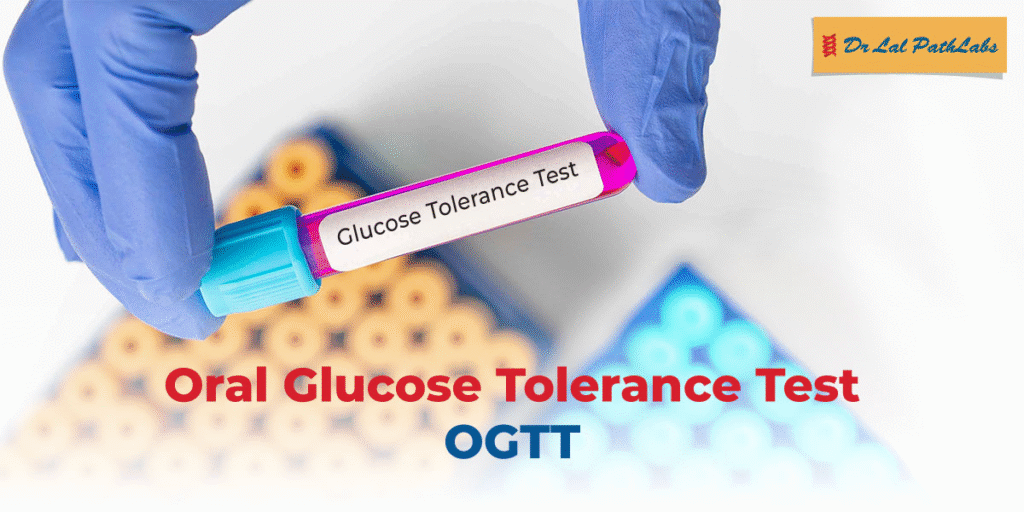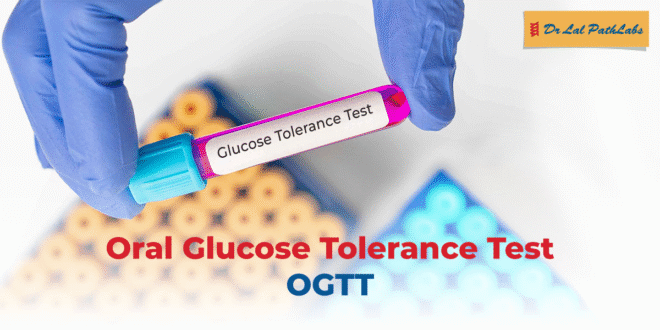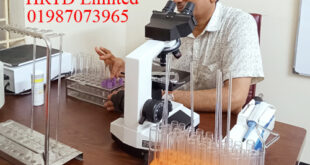Oral Glucose Tolerance Test

Introduction
Diabetes is one of the most rapidly growing health concerns worldwide. As the prevalence of both type 1 and type 2 diabetes increases, early diagnosis and timely monitoring become crucial for preventing complications. One of the most effective diagnostic tools available for evaluating glucose metabolism and diagnosing diabetes is the Oral Glucose Tolerance Test (OGTT).
At HRTD Medical Institute, a renowned diagnostic and medical training center located at Section-6, Block-Kha, Road-1, Plot-11, Metro Rail Pillar-249, Folpotti Mosque Lane, Mirpur-10, Dhaka-1216, we believe in providing not only diagnostic services but also educational content to raise awareness. This comprehensive guide explores the fundamentals, procedures, interpretation, applications, and limitations of the OGTT.
What is Oral Glucose Tolerance Test?
The Oral Glucose Tolerance Test (OGTT) is a diagnostic tool used to measure the body’s ability to metabolize glucose. It evaluates how efficiently the body clears glucose from the bloodstream over a specific period after consuming a sugary drink. It is commonly used to diagnose:
- Type 2 Diabetes Mellitus
- Impaired Glucose Tolerance (IGT)
- Gestational Diabetes Mellitus (GDM)
Historical Background of Oral Glucose Tolerance Test
The OGTT was developed in the early 20th century as clinicians began to understand the role of insulin and glucose regulation in the human body. The modern standardized OGTT protocol was introduced by the World Health Organization (WHO) and later adapted by organizations such as the American Diabetes Association (ADA).
Purpose of OGTT
OGTT serves several purposes, including:
- Diagnosis of Diabetes: Particularly when fasting blood glucose or HbA1c results are borderline.
- Detection of Prediabetes: A critical window for intervention.
- Diagnosis of Gestational Diabetes: Particularly in the second trimester of pregnancy.
- Monitoring of Insulin Resistance: In patients at high risk for metabolic disorders.
Indications for Oral Glucose Tolerance Test
Your doctor may recommend OGTT if:
- You have symptoms of hyperglycemia (frequent urination, thirst, blurred vision).
- You are pregnant and between 24–28 weeks of gestation.
- You have a family history of diabetes.
- You are overweight or obese with additional risk factors like high blood pressure or high cholesterol.
- You have previously delivered a baby over 4 kg or had a stillbirth.
- Your fasting blood glucose or random blood sugar results are borderline.
Who Should Not Take OGTT
OGTT may not be suitable for individuals who:
- Have undergone recent surgery or illness.
- Are taking medications that affect glucose metabolism (like corticosteroids).
- Have gastrointestinal disorders affecting glucose absorption.
- Have been diagnosed with diabetes already (other tests are more suitable).
Preparation for OGTT
At HRTD Medihttps://www.hrtdmi.com/cal Institute, we recommend the following preparation guidelines before taking the OGTT:
- Fasting: The patient must fast for 8–12 hours before the test.
- Diet: Eat a normal carbohydrate-rich diet (at least 150g/day) for 3 days before the test.
- Medications: Inform the physician about all ongoing medications.
- Physical Activity: Avoid vigorous exercise for 24 hours prior.
- Stress: Try to be relaxed, as stress can alter results.
OGTT Procedure at HRTD Medical Institute
- Fasting Blood Sample: A baseline blood sample is taken to measure fasting blood glucose.
- Glucose Solution Intake: The patient is given a standard glucose solution (usually 75 grams of glucose in 250–300 ml water).
- Timed Blood Sampling:
- Blood is drawn at 30 minutes, 1 hour, and 2 hours after drinking the solution.
- In some cases, samples may be taken up to 3 hours post-glucose intake.
- Monitoring: The patient should remain seated, without eating or drinking anything other than water during the test.
OGTT for Pregnant Women (Gestational Diabetes Test)
OGTT is a vital tool in diagnosing Gestational Diabetes Mellitus (GDM). The procedure is modified for pregnant women:
- Initial Screening (Glucose Challenge Test – GCT): 50g glucose followed by blood glucose measurement after 1 hour.
- Diagnostic Test (OGTT): If GCT is abnormal, a full OGTT with 100g glucose over 3 hours is conducted.
HRTD Medical Institute offers specialized care and guidance for pregnant women undergoing OGTT, ensuring accuracy and comfort.
Interpretation of OGTT Results
Standard 2-hour OGTT with 75g Glucose:
| Result Type | Fasting (mg/dL) | 2-hour Post Glucose (mg/dL) |
|---|---|---|
| Normal | <100 | <140 |
| Impaired Glucose Tolerance | 100–125 | 140–199 |
| Diabetes Mellitus | ≥126 | ≥200 |
For Pregnant Women (100g OGTT):
Gestational diabetes is diagnosed if two or more of the following values are met:
| Time | Glucose Level (mg/dL) |
|---|---|
| Fasting | ≥95 |
| 1-hour | ≥180 |
| 2-hour | ≥155 |
| 3-hour | ≥140 |
Advantages of OGTT
- Detects borderline and early-stage diabetes.
- Helps identify prediabetes for early intervention.
- Essential for diagnosing gestational diabetes.
- More accurate than random glucose testing in some cases.
Limitations of OGTT
- Time-consuming (2 to 3 hours).
- Requires fasting and multiple blood draws.
- Results can be affected by stress, medications, or illness.
- Not ideal for routine screening due to complexity.
Risks and Side Effects
OGTT is generally safe, but minor side effects may include:
- Nausea or vomiting after drinking the glucose solution.
- Dizziness or lightheadedness during blood sampling.
- Mild bruising or discomfort at the puncture site.
At HRTD Medical Institute, our trained staff ensure patient comfort and safety throughout the process.
OGTT vs. Other Glucose Tests
| Test Type | Use Case | Invasiveness | Duration |
|---|---|---|---|
| Fasting Blood Sugar | Simple screening | Low | Fast |
| HbA1c | Long-term glucose control | Low | Fast |
| OGTT | Diagnosing IGT/GDM/DM | Moderate | Long (2–3 hrs) |
Role of HRTD Medical Institute in OGTT Services
HRTD Medical Institute, based in Mirpur-10, Dhaka, is fully equipped with modern diagnostic tools and experienced medical technologists to perform OGTT with precision and care. Our facility ensures:
- Hygienic and comfortable environment
- Qualified phlebotomists
- Modern laboratory support
- Digital reporting and consultation
- Special support for pregnant women and diabetic patients
We also offer patient counseling on lifestyle changes, diet plans, and follow-up schedules based on OGTT results.
Case Study: A Real-Life Experience from HRTD
Mrs. Rina Akter, a 29-year-old pregnant woman, visited HRTD Medical Institute for routine prenatal checkups. Due to her BMI and family history of diabetes, our doctor recommended an OGTT at 26 weeks of pregnancy. Her results confirmed gestational diabetes, and thanks to timely diagnosis and dietary management, she delivered a healthy baby without complications.
FAQs on OGTT
1. Is OGTT painful?
No, except for minor discomfort during blood draws.
2. Can I drink water before the test?
Yes, plain water is allowed.
3. Can I take medications before OGTT?
Some medications may interfere; always consult your doctor.
4. How accurate is OGTT?
When done under controlled conditions like at HRTD Medical Institute, it is highly reliable.
5. How often should OGTT be repeated?
If normal, repeat every 3 years; if prediabetes is detected, yearly tests are advised.
Conclusion
The Oral Glucose Tolerance Test (OGTT) remains a gold standard in the detection and monitoring of diabetes and prediabetic conditions. Its role in diagnosing gestational diabetes also makes it indispensable during pregnancy. While the test demands preparation and time, its value in early diagnosis cannot be overstated.
At HRTD Medical Institute, we combine clinical expertise, modern facilities, and compassionate care to ensure that every OGTT performed is accurate, safe, and informative. For appointments or consultations, contact us at:
📞 01797522136 | 01987073965 | 01784572173
📍 Section-6, Block-Kha, Road-1, Plot-11, Metro Rail Pillar-249, Folpotti Mosque Lane, Mirpur-10, Dhaka-1216
 Pathology Training Institute in Bangladesh Best Pathology Training Institute in Bangladesh
Pathology Training Institute in Bangladesh Best Pathology Training Institute in Bangladesh




